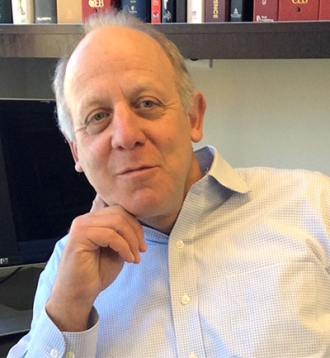In the News
News
Jun 02, 2019
Everything You Ever Wanted to Know About the Marin County Human Rights Commission but Were Afraid to Ask
Jun 02, 2019
By Matt White

Former MCBA president Matt White interviews the chair of the Marin County Human Rights Commission, Matt White, and unveils the mysteries and secrets of the Commission.
Q: What is the Human Rights Commission, anyway?
A: Thank you for asking. The County Board of Supervisors created the seven-member commission some years ago, and gave it a rather challenging mission: “…To promote a community based on social justice, with equality for all, and to eliminate discrimination based on race, religion, color, age, ancestry, ethnicity, sexual orientation, place of birth, national origin, or disability….”
Q: Sounds easy.
A: But wait, there’s more: “…[T]he commission shall provide a public forum, serve as a resource to the community, and advise the Board of Supervisors on human rights issues.”
Q: Has the HRC succeeded in its quest to “eliminate discrimination” in Marin County?
A: [Chuckles.] No, not yet. It’s usually good to be Number One, but not always: We are not proud of the recent award bestowed upon us by the Advancement Project California, which crowned Marin as the most racially unequal county in California. The report considered numerous factors, including home ownership, access to health care, and educational opportunities. For grim reading, check out the report here.
Q: What types of issues have you tackled?
A: Last year, we explored racial disparity at the Youth Court. Youth Court is a successful restorative justice program for teenagers who commit minor crimes or infractions. Participants have an exceedingly low (8%) recidivism rate. Unfortunately, very few (if any) African-American students are referred to the program. As it turns out, there are a lot of reasons for this. Chief among them: each police agency may choose either to refer youngsters directly to Youth Court, or to refer them to the probation department, which then decides whether Youth Court is appropriate. The Sheriff’s office, which patrols Marin City, does not make direct referrals to Youth Court. Basically, we operate like a mini-grand jury, but without subpoena power. We act as the Board of Supervisors’ “eyes and ears” on human rights matters in the community.
Q: What else?
A: In recent months, we’ve urged the Sheriff’s office to limit its cooperation with ICE. Specifically, we want an end to the public posting of the release dates for all residents of the county jail, which makes it easy for ICE to pick up suspected undocumented people. We also waded into the Dixie School District controversy, adding our voice to those demanding a name change.
Q: Current projects?
A: At our May meeting, we heard from Cindy Ayala, the probation department’s restorative justice coordinator, and learned more about existing and proposed restorative justice programs in the county. (Ms. Ayala was featured in the April 2018 edition of The Marin Lawyer.) For June, we have invited a representative from the Spahr Center to address issues facing the LGBTQ community in Marin County. Beyond that, we are open to suggestions.
Q: That sounds amazing! How do readers get on the Commission?
A: The Board of Supervisors just appointed two new commissioners, so there is no current vacancy. However, commissioners serve for fixed terms, so there are regular openings. There are no particular qualifications, although a demonstrated commitment to human rights seems to be the primary criterion. You can learn more at the HRC web site.
Matt White is a personal injury litigator with Monty White LLP, a mediator with Resolution Remedies, and chair of the Marin County Human Rights Commission. He was president of the MCBA in 2004. His comments are his own and do not necessarily represent those of the Human Rights Commission or the County of Marin.












